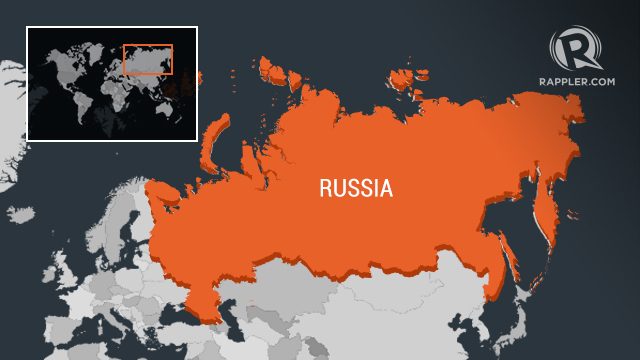SUMMARY
This is AI generated summarization, which may have errors. For context, always refer to the full article.

STRASBOURG, France – The European Court of Human Rights ruled Thursday, April 13, there were “serious failings” in Russia’s handling of the Beslan school siege by Chechen rebels in 2004 in which over 330 people were killed, many of them children.
The court said although Russian authorities had information that an attack was being planned on a school in North Ossetia, they failed to do enough to disrupt the plot and had not sufficiently protected the hostages.
Russia reacted furiously to the judgement, saying it was “absolutely unacceptable.”
The school was stormed on September 1, 2004 by militants demanding the withdrawal of Russian troops from the war-torn republic of Chechnya.
The attackers herded 1,100 people including 800 children into a gymnasium and rigged the building with explosives.
After 3 days of fruitless negotiations, explosions in the school prompted Russian security forces to storm the gymnasium.
A total of 184 children were among the 334 dead as the siege came to a bloody end.
‘Insufficient steps’
Russian authorities argue they took the best course of action faced with armed extremists, but many of the survivors and their relatives believe the security services were to blame for the firefight.
The case was brought to the Strasbourg-based court by more than 400 Russians either involved in the incident or whose relatives were taken hostage or killed.
“The authorities had been in possession of sufficiently specific information of a planned terrorist attack in the area, linked to an educational institution,” the court said.
“Nevertheless, not enough had been done to disrupt the terrorists meeting and preparing.”
The judges found that “insufficient steps had been taken to prevent (the attackers) traveling on the day of the attack; security at the school had not been increased; and neither the school nor the public had been warned of the threat”.
Kremlin spokesman Dmitry Peskov said Russia found it “impossible” to agree with the wording of the judgement.
“Such phrasing for a country that has suffered an attack is absolutely unacceptable,” he told journalists.
‘Lethal force’
The court found that through its actions, the Russian state had violated Article 2 of the European Convention of Human Rights, which guarantees a right to life. (READ: Hate human rights? They protect freedoms you enjoy)
There was an additional violation in the use of “lethal force by security forces”.
“In the absence of proper legal rules, powerful weapons such as tank cannon grenade launchers and flame-throwers had been used on the school,” which had contributed to the casualties among the hostage, the court said.
The judges also said there were “serious shortcomings” in the investigation into the attack, especially that there had been “no proper examination of how the victims had died”.
The claimants in the case say the authorities were primarily seeking to eliminate the attackers with little care taken to avoid deaths of hostages.
Their lawyers have particularly criticized the lack of in-depth autopsies on the bodies of 116 victims found burned in the gymnasium.
The massacre was one of a string of brutal attacks Russia suffered in the 1990s and 2000s stemming mainly from an insurgency in Chechnya that morphed from a separatist rebellion into an Islamist campaign.
Russian and international experts describe Beslan as a political shock for Russia comparable to the September 11, 2001 attacks in the United States and say it marked a turning point for the Kremlin’s policy in the Caucasus.
There were two separatist wars in Chechnya in the 1990s and 2000s, but violence in the region has largely been suppressed under the iron-fisted rule of strongman leader Ramzan Kadyrov. (READ: 10 police killed in Islamist attack in Chechnya)
However, the overwhelmingly Muslim Russian North Caucasus has emerged as one of the major sources of foreign jihadists fighting in Syria and Iraq.
In January, Kadyrov said his forces had detained more than 50 insurgents linked to the Islamic State group in a security operation. – Rappler.com
Add a comment
How does this make you feel?





There are no comments yet. Add your comment to start the conversation.